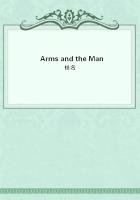He has not been so Successful in establishing a doctrine of his own as in opposing the errors of others.But his view of perception, whether we approve of it or not, can be understood by us.He maintains that there is first a sensation in the mind, and that this sensation suggests a perception.The word <suggestion> to denote the rise of a thought in the mind, was employed by earlier philosophers, but was adopted by Reid from Berkeley, who again took it from Locke.Reid maintains that there are natural suggestions; particularly that sensation suggests the notion of present existence, and the belief that what we perceive or feel does now exist; that memory suggests the notion of past existence, and the belief that what we remember did exist in time past; and that our sensations and thoughts do also suggest the notion of a mind, and the belief of its existence and of its relation to our thoughts.By a like natural principle it is, that a beginning of existence, or any change in nature, suggests to us the notion of a cause and compels our belief in its existence....And, in like manner, certain sensations of touch, by the constitution of our nature, suggest to us extension, solidity, and motion."(" Works," p.111.) Closely connected or rather identical with this theory of suggestion is his doctrine of natural language and signs, -- a phraseology also taken from Berkeley.He maintains that there are natural signs, "which, though we never had any notion or conception of the thing signified, do suggest it, or conjure it up, as it were by a natural kind of magic, and at once give us a conception and create a belief in it." He calls " our sensations signs of external objects." The operations are represented by him as " ****** and original, and therefore inexplicable, acts of the mind."The whole account seems to me unsatisfactory, nearly as much so as the ideal hypothesis.There is no evidence that sensation comes before perception.The two are thus distinguished by Reid: " When I smell a rose, there is in this operation both sensation and perception.The agreeable odor I feel, considered by itself, without relation to any external object, is merely a sensation." The quality in the rose which {212} produces the sensation "is the object perceived, and that act of my mind by which I have the conviction and belief of this quality is what I call perception." (310.) These two seem to me to constitute one concrete act, and they can be separated only by a process of abstraction.There is not first a sensation of a colored surface, and then a perception of it; but we have the two at once.This does away with the necessity of signs and suggestions, which might be quite as troublesome intermediaries as ideas.It would be better to say that, upon certain affections of sense being conveyed to the mind, it <knows> (this is a better phrase than <conceive>, or than <believe in> at once the colored surface.
Hamilton, when he began to edit Reid, thought that Reid's doctrine was the same as his own.But, as he advances, he sees that it is not so; and he comes to doubt whether, after all, Reid held the doctrine to which he himself adhered so tenaciously, that of immediate perception.Reid does, indeed, represent perception as immediate; meaning that it is direct, and with out a process of reasoning.Yet he tells us that, " although there is no reasoning in perception, yet there are certain means and instruments, which, by the appointment of nature, must intervene between the, object and our perception of it; and by these our perceptions are limited and regulated." Surely Hamilton himself will admit that there are such means in the action of the senses, of the nerves, and the brain, without which there can be no perception.Reid indeed calls in more of such anterior processes than Hamilton does; in particular, he calls in signs and suggestions, and makes sensation come before perception.But, after all, the two agree in the main point.While both allow, as all men do, that there are processes prior to the perception, both agree that when the mind is perceiving, it is perceiving not an idea, or even a sensation or suggestion, but an external extended object.
On one point, however, and this not an unimportant one, Reid and his commentator do differ; and that is as to what should be represented as the object of perception.Locke means by idea, " whatever is the object of the understanding when it thinks." But the word <object>, in such a connection, may be as ambiguous as <idea>.Reid speaks of the stars as the objects before the mind when we look into the heavens.Hamilton {213} says that the object is the rays of light reaching the eye.He maintains that in perception the proper object is not a distant one, but is either the organism or the objects in contact with the organism.
Physiological research seems to show that in this respect Hamilton is right.But still it is true that, whatever be the immediate object, the distant star, and not the rays of light, does become, always by an easy process of observation and inference, the main object contemplated.The two are agreed that the object is an external extended one; is, in short, a natural object, and not an idea in the mind, or a modification of the mind.
Let us attend a little more carefully to the view which he gives of perception proper." If, therefore, we attend to that act of our mind which we call the perception of an external object, we shall find in it these three things:















